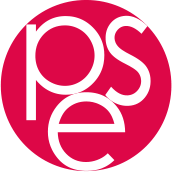HEALTH AND HAPPINESS - From Income and Inequality to Health and Happiness
OVERVIEW
“… I have begun to be somewhat merry because I have been told that that is good for one’s health.” (Voltaire, Letter to the Abbé Trublet, 1761)
The summer school will be centred around health, happiness, income, and income inequality. Individual health and happiness measures are closely related. Indeed, people give disproportionate weight to health in their general level of happiness (i.e. well-being), compared to other domains such as housing or social life. Moreover, the measures most used by researchers to capture health and happiness in surveys are subjective ordinal scales and similar methods may thus be employed to identify factors influencing health and well-being. This program, that studies health and happiness together, is designed to provide (1) an overview of health and happiness measures, focusing on subjective data and on Big Data, and (2) a discussion of the effect of income and income inequality on health and happiness, at the frontier of economic research. We will address the following set of questions. What is the relationship between health and happiness? Are subjective measures biased? If they are, what are the pros and cons of correcting them? How is Big Data changing academic research on health and well-being? Why does raising the incomes of all does not increase the happiness of all? How do economic conditions and income inequality influence health and well-being?
The first modules focus on the measurement of health and well-being. Subjective data have become increasingly popular in economic research and policy. First, the measurement of subjective well-being and validity issues will be discussed. Correlates of well-being will be presented. In particular, the associations between well-being and health (physiological measures) will be examined. We will also present the most commonly used health measures, distinguishing between objective and subjective data. The biases of self-reported, subjective measures will be highlighted, in the context of the measurement of health inequalities in particular. Models to address these limitations will be reviewed. Finally, given that Big Data analytics may revolutionize the way we do research, three modules will explore the possibilities of Big Data (administrative data and Google Trends, among others) in assessing health and well-being.
Using these different measures, the second part of the program will present evidence on the relationship between income and income inequality on the one hand, and health and well-being on the other hand. The main result of the economics of happiness literature is the so-called Easterlin paradox: average self-declared happiness does not increase during periods of sustained income growth, but income is positively correlated with subjective well-being in cross-sectional data. We will discuss the two mechanisms underlying the paradox, i.e. adaptation and comparison, which reduce or eliminate the benefits of income growth. Given the importance of income inequality and of policies that try to reduce it, we will also provide evidence on subjective perceptions of inequality. Moreover, the link between household income and health, i.e. “social health inequality,” will be examined, as we will discuss the causal impact of income on health. Finally, we will review the latest research on the effect of income inequality on health. Because estimating causal impacts has become the gold standard in economic analysis, the modules will always discuss appropriate identification strategies.
THEMES
The theme I: Measurement and validity of health and well-being, focusing on subjective data (instructors: Bénédicte Apouey, Sarah Fleche, and Carine Milcent)
Theme II: Big Data in health and well-being (instructors: Clément Bellet and Pierre-Yves Geoffard)
Theme III: Effect of income and income inequality on subjective well-being (instructors: Clément Bellet and Claudia Senik)
Theme IV: Impact of income and income inequality on health (instructors: Bénédicte Apouey and Daniel Waldenström)
WORKSHOP
Workshops will complement the lectures, where students will have the opportunity to present and discuss their work with fellow students and faculty. These interactive workshops will take place on Wednesday and Friday. Participants are encouraged to submit a paper in May to be presented at these workshops.
PREREQUISITES
Graduates in Economics with strong theoretical and empirical skills.
How to apply to the PSE Summer School
Participant profiles and selection
JPEG - 98.3 kb
The PSE Summer School is aimed at professionals, researchers, and graduate students (Masters and PhD) notably in Economics, in Social Sciences and in Finance. Undergraduate students in Economics will be considered if their profile is exceptionally strong.
Your application must include:
- A current Curriculum Vitae in pdf format
- A copy of your most advanced degree
- A short motivation text
- A photo of yourself [not used per se in the application process]
- For Students: proof of status
- Optional - Letter(s) of recommendation
Fees
Fees cover lunches and social events, as well as the welcome and farewell cocktails. They do not cover accommodation, transport or any other services.
Early bird discount: A 10% discount applies to participants who pay before March 10, 2019. For sponsored candidates: purchase orders are not considered payment.
Group discount: A 10% discount applies when a single employer or institution enrols at least five (5) members in the Summer School. The discount is offered to participants regardless of the course she or he selects and is applied upon the signing of a training agreement between the employer and PSE.
For more information click "LINK TO ORIGINAL" below.
This opportunity has expired. It was originally published here:
https://www.parisschoolofeconomics.eu/en/teaching/pse-summer-school/health-happiness/
